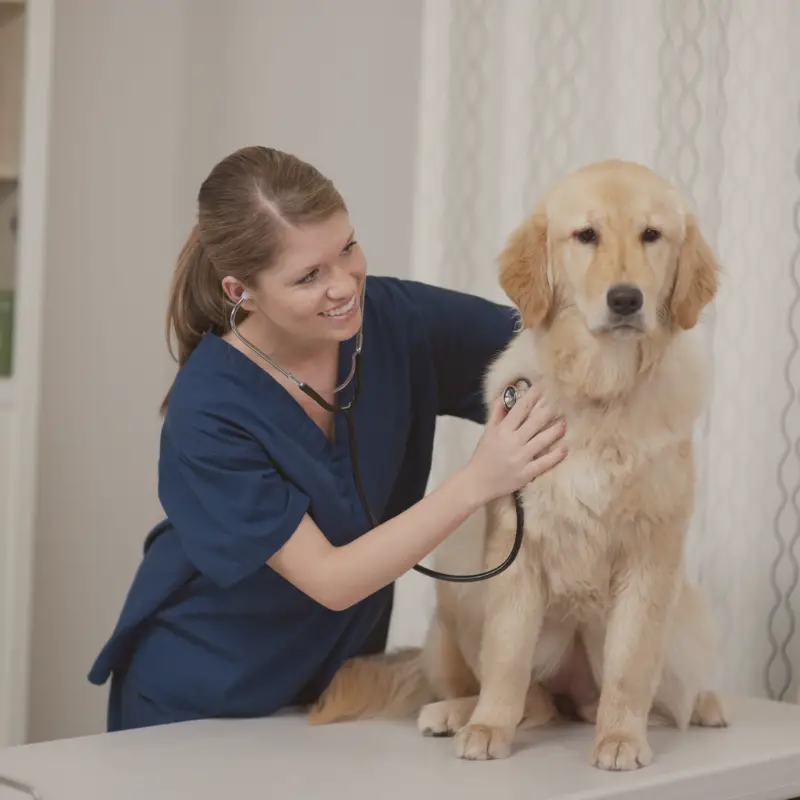As a conscientious dog owner, it’s only natural to feel worried when your canine companion suffers from gastrointestinal problems. A common query is whether Pepto Bismol can be administered to dogs. In this article, we will delve into why dog owners might contemplate using Pepto Bismol, what exactly Pepto Bismol is, its potential hazards, safer alternatives, and the significance of consulting a veterinarian.
Can I give Pepto Bismol to my dog?
Generally, it is not advised to administer Pepto Bismol to dogs without consulting a veterinarian. While Pepto Bismol can be utilised in some instances to treat specific gastrointestinal issues in dogs, it is crucial to ascertain the correct dosage and ensure it is safe for your particular dog. Furthermore, some dogs may have underlying health conditions or be on medications that could negatively interact with Pepto Bismol. It is always best to consult with a veterinarian before giving any medication to your dog.
Why Dog Owners Consider Using Pepto Bismol
Gastrointestinal problems such as diarrhoea, upset stomach, and vomiting can affect dogs, prompting owners to seek remedies to alleviate their pet’s discomfort. Pepto Bismol, a popular over-the-counter medication for humans, is sometimes considered a potential solution due to its reputation for soothing digestive issues.
Understanding Pepto Bismol
Pepto Bismol is an antacid and anti-diarrhoeal medication with the active ingredient bismuth subsalicylate. It works by coating the stomach lining, reducing inflammation, and relieving symptoms like nausea, indigestion, and diarrhoea in humans.
Potential Risks of Pepto Bismol for Dogs
While Pepto Bismol can be effective for humans, it is not always safe or suitable for dogs. Some possible risks include:
Salicylate Toxicity: Dogs are more sensitive to salicylates, which are present in Pepto Bismol. Overdosing or prolonged use can lead to salicylate toxicity, causing symptoms like vomiting, diarrhoea, loss of appetite, and even more severe complications.
Allergic Reactions: Dogs may have allergic reactions to Pepto Bismol, resulting in symptoms such as itching, swelling, or difficulty breathing.
Interactions with Medications: Pepto Bismol can interact with certain medications, potentially reducing their effectiveness or causing adverse effects. It is crucial to consult a veterinarian if your dog takes other medicines.
Safer Alternatives
Instead of using Pepto Bismol, consider these safer alternatives for managing your dog’s gastrointestinal issues:
Veterinary Guidance: The first step should always be to consult a veterinarian. They can provide a proper diagnosis, recommend appropriate treatment, and suggest safe medications if necessary.
Dietary Changes: In some cases, dietary modifications can help alleviate digestive issues. Your veterinarian may suggest a bland diet or specific food options that are gentle on the stomach.
Probiotics: Probiotics can promote a healthy gut flora balance and aid in digestion. Your veterinarian can recommend suitable probiotic supplements for your dog.
Prescription Medications: In certain situations, your veterinarian may prescribe medications specifically formulated for dogs to address gastrointestinal issues.
Importance of Veterinary Consultation
Every dog is unique, and their health conditions can vary. It is crucial to consult a veterinarian before administering any medication, including Pepto Bismol. Before recommending the most appropriate treatment, they will consider your dog’s overall health, medical history, and potential interactions or risks.
Signs of Gastrointestinal Issues in Dogs
- Diarrhoea: Frequent loose or watery stools.
- Vomiting: Forceful expulsion of the stomach contents.
- Upset Stomach: Signs may include decreased appetite, abdominal discomfort, excessive gas, or bloating.
- Changes in Bowel Movements: Straining, constipation, or presence of blood in the stool.
Importance of Identifying the Underlying Cause
Identifying the underlying cause of your dog’s gastrointestinal issues is crucial. While Pepto Bismol may provide temporary relief, it does not address the root cause. Common causes include dietary indiscretion, food allergies, infections, parasites, or underlying medical conditions. A veterinarian can help determine the cause and provide appropriate treatment.
Potential Side Effects of Pepto Bismol on Dogs
In addition to the risks mentioned earlier, Pepto Bismol can cause side effects in dogs, including constipation, darkening of the stool, or a temporary darkening of the tongue or gums. These side effects should be monitored and reported to a veterinarian if they occur.
Preventive Measures for Gastrointestinal Health: To maintain your dog’s gastrointestinal health, consider the following preventive measures:
Provide a balanced diet: Feed your dog high-quality, easily digestible food appropriate for their age and breed.
Avoid table scraps: Human food can be harmful for dogs to digest and may lead to gastrointestinal issues.
Keep trash and hazardous substances out of reach: Dogs are notorious for scavenging, so ensure they cannot access rubbish or ingest toxic substances.
Gradual diet changes: When transitioning to a new diet, do it gradually to avoid digestive upset.
Regular exercise: Regular exercise helps maintain a healthy digestive system.
When to Seek Veterinary Care

While mild gastrointestinal issues may resolve on their own, it is crucial to seek veterinary care if:
- Symptoms persist for more than 24-48 hours.
- Your dog shows signs of dehydration (excessive thirst, dry gums, sunken eyes).
- There is blood in the stool or vomit.
- Your dog appears lethargic, in pain, or has a fever.
Remember, the well-being of your dog is paramount, and seeking professional veterinary advice is always the best course of action for their health.
Conclusion
While Pepto Bismol may seem like a quick solution for your dog’s gastrointestinal issues, it is essential to prioritise their safety and well-being. Understanding the potential risks, exploring safer alternatives, and seeking veterinary guidance will ensure your dog receives the most appropriate care for their specific condition. Remember, your veterinarian is the best resource for addressing your dog’s health concerns effectively and safely.
